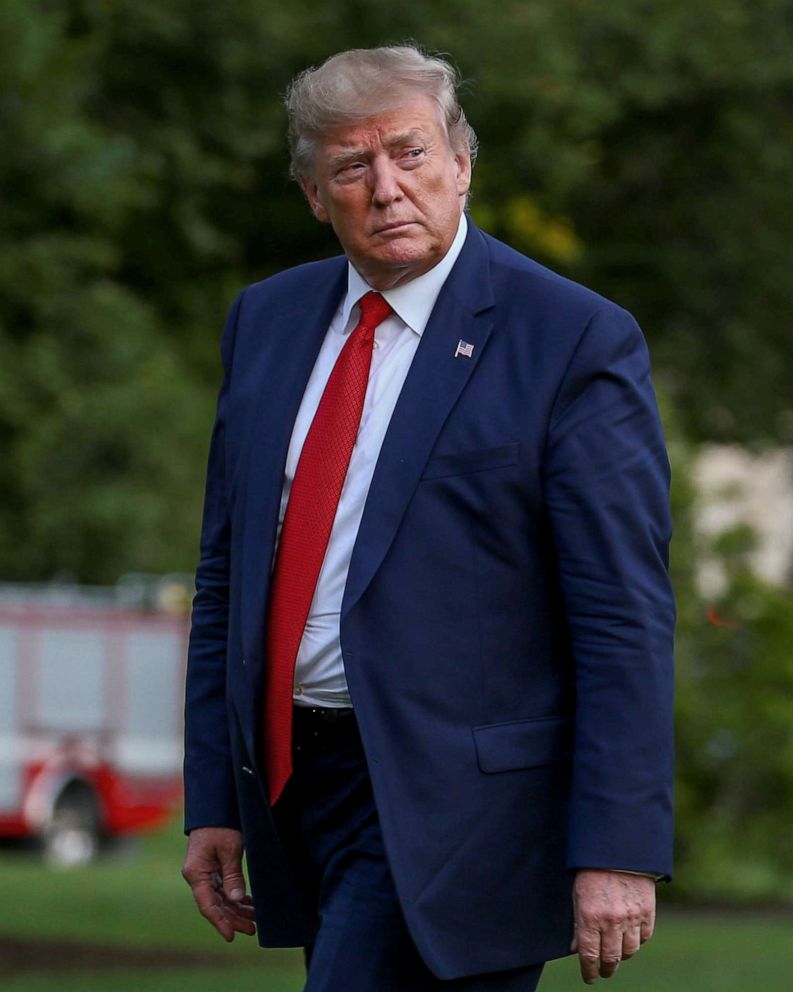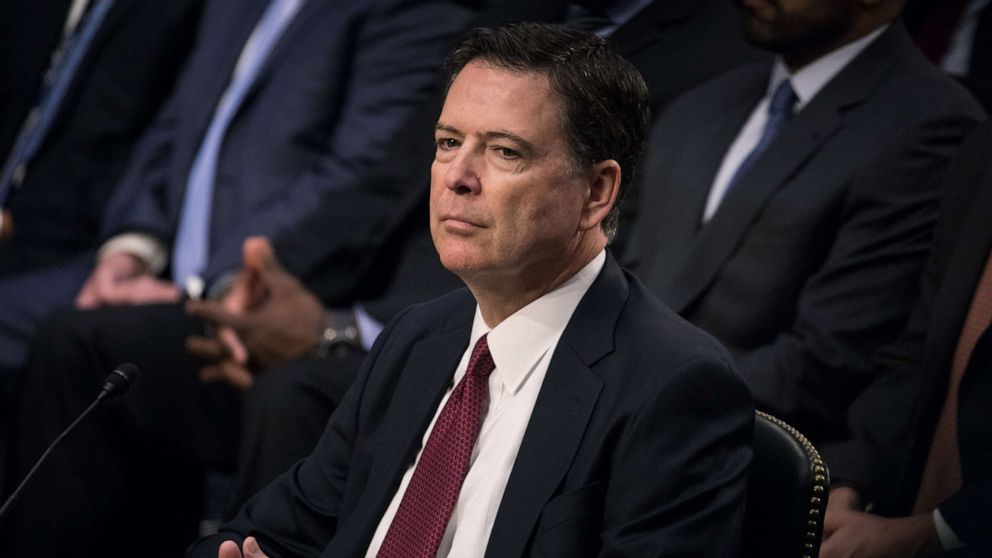Inspector general finds Comey violated FBI policy on Trump memos, DOJ declines prosecution
The Justice Department's inspector general on Thursday released a report scrutinizing fired FBI Director James Comey's handling of memos he wrote detailing his interactions with President Donald Trump, and concluding Comey violated FBI policies.
But the Department of Justice will not prosecute Comey for the violations, the office said, after reviewing the findings in the report.

Inspector General Michael Horowitz first revealed in June 2018 that his office was investigating Comey's decision to reveal several of the memos to a friend following his May 2017 firing, who later shared the contents of those memos with a reporter.
"Comey's actions with respect to the Memos violated Department and FBI policies concerning the retention, handling, and dissemination of FBI records and information, and violated the requirements of Comey’s FBI Employment Agreement," the report said..
Comey has publicly said he considered the memos as personal materials, a contention that the report disputes directly.
"We conclude that the Memos were official FBI records, rather than Comey's personal documents," the report states.
Prior to sharing the memos, Comey made select redactions of information that could be considered classified. According to the report, however, the FBI later determined that two memos contained information deemed 'CONFIDENTIAL' and two others contained information that could be classified as 'SECRET.'
The report also notes, though, that the IG "found no evidence that Comey or his attorneys released any of the classified information contained in any of the Memos to members of the media."
That statement stands in direct contrast to arguments made by President Trump, who has accused Comey of illegally leaking classified information to the media.
"James Comey leaked CLASSIFIED INFORMATION to the media," Trump tweeted in July 2017. "That is so illegal!"

President Trump tweeted his reaction to the report on Thursday afternoon, saying Comey "should be ashamed of himself!"
Earlier in the day, Comey tweeted his reaction to the report, calling out "those who defamed me" by suggesting his handling of the memos would result in his prosecution.
Comey has said he drafted the seven memos detailing his interactions with President Trump out of concern that Trump might lie about their interactions.
In the months before his eventual firing, Comey documented several instances that became key episodes in special counsel Robert Mueller's investigation into whether President Trump obstructed justice.
One such memo recounted a private Oval Office meeting during which Comey said Trump urged him to drop the FBI's investigation into former national security adviser Michael Flynn.
Following his firing, Comey told Congress he revealed his memos in order to prompt the appointment of a special counsel, and after a tweet from President Trump that said Comey "better hope that there are no 'tapes' of our conversations before he starts leaking to the press!"
The OIG determined that disclosure, as well as Comey's continued possession of the memos after his firing, amounted to a violation of FBI and DOJ policy.
The inspector general's office argued that Comey's actions set a "dangerous example for the over 35,000 current FBI employees—and the many thousands more former FBI employees" who have been entrusted with classified information.
"Even when these employees believe that their most strongly-held personal convictions might be served by an unauthorized disclosure, the FBI depends on them not to disclose sensitive information," the report said. "Former Director Comey failed to live up to this responsibility."
Inspector General Horowitz is expected to release in the coming months a more extensive report examining the origins of the investigation into Russia's interference in the 2016 election.




